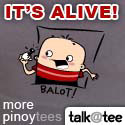Senior High School Core Subject: Understanding Culture, Society and Politics
Understanding Culture, Society and Politics is one of the core subjects under the senior high school curriculum. Some examples of the things that you will learn from taking this subject include:
- Starting points for the understanding of culture, society, and politics
- Sharing of social and cultural backgrounds
- Observations about social, political, and cultural behavior and phenomena
- Observations on social, political, and cultural change
- Definition of anthropology, political science, and sociology
- Defining Culture and Society from the perspectives of anthropology and sociology
- Society as a group of people sharing a common culture
- Culture as a complex whole
- Aspects of Culture
- Dynamic, Flexible, & Adaptive
- Shared and Contested (given the reality of social differentiation)
- Learned through socialization or enculturation
- Patterned social interactions
- Integrated and at times unstable
- Transmitted through socialization/enculturation
- Requires language and other forms of communication
- Ethnocentrism and Cultural Relativism as orientations in viewing other cultures
- Looking back at Human Biocultural and Social Evolution
- Biological evolution
- Cultural and sociopolitical evolution
- The Neolithic Revolution
- Early civilization and the rise of the state
- Democratization
- Becoming a member of society
- Enculturation/Socialization
- Identity formation (identities, disciplines, and aspirations)
- Norms and values
- Statuses and roles (e.g. age, gender)
- Conformity and deviance
- Social control (gossip, social ostracism, laws and punishments)
- Forms of deviance (ritualism, retreatism, rebellion, and innovation)
- Human dignity, rights, and the common good
- How society is organized
- Groups within society: Primary and Secondary
- In-groups and out-groups
- Reference groups
- Networks
- Cultural, social and political institutions
- Kinship, marriage, and the household
- Kinship by blood
- Descent and marriage (unilineal, matrilineal, patrilineal, bilateral)
- Kinship by marriage
- Kinship by blood
- Marriage rules cross-culturally (monogamy vs. polygamy, post-marital residency rules, deferred marriage, partners)
- Kinship by ritual (Compadrazgo)
- Family and the household
- Nuclear, extended, and reconstituted families (separated, transnational)
- Politics of kinship (political dynasty, alliances)
- Political and leadership structures
- Political organization
- Bands
- Tribes
- Chiefdoms
- States and nations
- Authority and legitimacy
- Traditional
- Charismatic
- Rational
- Economic Institutions
- Reciprocity
- Transfers
- Redistribution
- Market transactions
- Markets and state
- Economic Institutions
- Reciprocity
- Transfers
- Redistribution
- Market transactions
- Markets and state
- Nonstate institutions
- Banks and corporations
- Cooperatives and trade unions
- Transnational advocacy groups
- Development agencies
- International organizations
- Education
- Functions of education in society (formal and nonformal)
- Productive citizenry
- Self-actualization
- Primary education as a human right
- Functions of education in society (formal and nonformal)
- Religion and belief systems
- Animism
- Polytheism
- Monotheism
- Institutionalized religions
- Separation of church and state
- Health
- Culture-specific syndromes and illnesses (e.g., “bughat”, ”usog”/”buyag”)
- Systems of diagnosis, prevention and healing (e.g., traditional, western, alternative healing systems)
- Health as a human right
- Social and political stratification
- Social desirables (wealth, power, prestige)
- Social mobility system
- Open (Class)
- Closed (Caste)
- Social inequality
- Access to social, political, and symbolic capital
- Gender inequality
- Ethnic minorities
- Other minorities (e.g., persons with disabilities)
- Global Inequality (relationships between states and nonstate actors in the global community)
- Cultural, Social, and Political Change
- Sources of social, cultural, and political change
- Innovation
- Diffusion
- Acculturation and assimilation
- Social contradictions and tensions (e.g., Inter-ethnic conflicts, class struggle, armed conflict, terrorism, protests, gender issues)
- New challenges to human adaptation and social change
- Global warming and climate change
- Transnational migration and Overseas Filipino Workers (OFWs)
- Responding to social, political, and cultural change
- Inclusive Citizenship and participatory governance
- New forms of media and social networking
- Social movements (e.g., environmentalism, feminism)
While studying, you will also be asked to demonstrate what you have learned by participating in class activities that may include the following:
- Analyzing social, political, and cultural change
- Identifying aspects of culture and society
- Identifying forms of tangible and intangible heritage and the threats to these
- Tracing kinship ties and social networks
- Identifying characteristics of the systems of stratification
- Analyzing key features of interrelationships in human evolution
- Analyzing aspects of social organization
- Comparing different social forms of social organization
- Analyzing social and political structures
- Conducting participant observation
- Examining stratification from the functionalist and conflict perspectives
- Evaluating factors causing social, political, and cultural change
- Suggesting ways to address global inequalities
- Developing a plan of action for community-based response to change
These examples only cover the scope of the core subjects. For the scope of the contextualized and specialized subjects, please refer to their respective lists.





